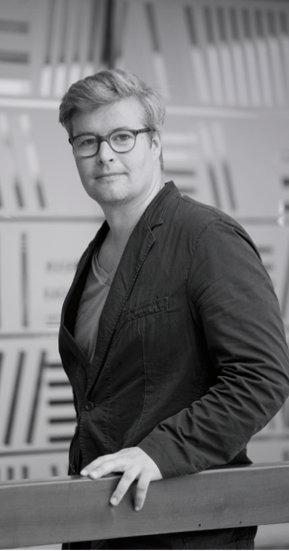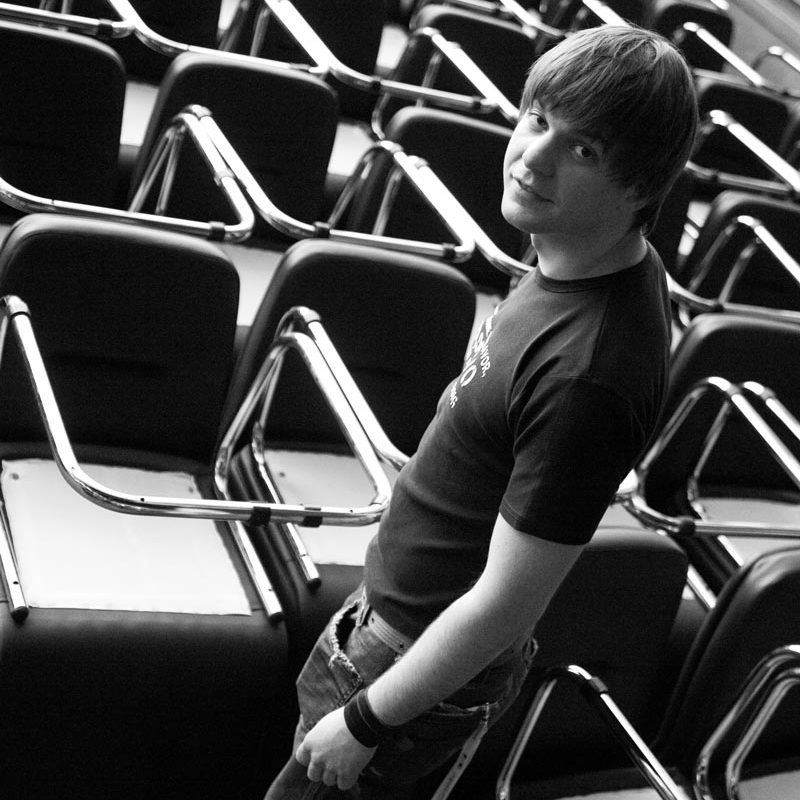
INTERVIEW WITH THOMAS FEICHTNER – POLITIKA
WHEN THE CRISIS HITS, DON’T PANIC
The Belgrade Design Week with its variety of programs opens tonight and lasts until June 10. A special author, someone who is proud of an award he won as a child for a drawing, for a competition organized by a Swiss candy manufacturer – a plush toy and a lot of chocolate – will have the honor to open a special segment of this festival: BDW’s famous international conference titled “Freedom Squared” this year. Thomas Feichtner, born in Brazil, lives in Austria and is one of the country’s most prominent designers, also a professor at the academy in Kiel, Germany. He exhibited at the Triennale in Milan and at the Museum of Applied Arts in Vienna. Working in the field of industrial design, in which he is most productive, he collaborated with many companies, including Swarovski and Adidas, but that did not prevent him from coming to Belgrade to speak about creative freedom which goes beyond globalization and mass production. That is why he says that “freedom is always relative, but necessary in order to create something new, bearing in mind that it is important not to attempt to please others”.
Not even our parents?
Not even them, at least not when it comes to the essential things in your life. When I was in school everyone tried hard to get me interested in math, while my parents were always afraid I would become an artist who is always broke. That’s why they tried as hard as they could to keep me away from the academy in which I eventually enrolled anyway. The way they behaved raised my interest in this profession even more.
You once said that your greatest challenge was a project you designed while still a student…
Yes, that was, at the same time, my first job. A snowboard manufacturer hired me to create graphic designs for the company. At that time, I was a skateboarder, and snowboard was just becoming popular in Austria. I immediately said yes, even though I had no experience. The next day I bought my first computer and started to learn the necessary skills. While working on that collection I founded my studio.
Today, after many years of practice, what is the foundation of your design aesthetics?
Although my goal was to not have principles, the irony is that it is not possible after all, even when you think you’ve managed to do it. Perhaps my main principle is that design, in my case, is not a marketing tool. That I am not interested in focus groups or surveys. I often don’t even imagine a potential viewer or user. What counts is artistry and skill. It is easy to have ideas, but having the right idea at the right time – that is art. That is why I write down all the ideas that come to my mind during the day, regardless of whether I need them at the time or not. After a while, I have a whole pool of ideas, which makes my life easier.
Where exactly do you find inspiration, in nature, in geometry, in materials…?
I observe a material very carefully, analyze its structure, research its history, its background and mostly follow my instinct and the passion that I feel. But I am not inspired by a walk in the park, no.
What is a bigger incentive for you: working with clients or with students?
In general, there is not much difference, because it’s all about design. But I really enjoy talking to new generations of designers. I have a feeling that I am not the only one who teaches, that they teach me as well. They express their ideas more directly, they are often radical. I was like that too when I was a student, I knew exactly what design was all about. When I think about it today, I see something very diffused. Nothing is black and white anymore. Now everything is in color. On the other hand, I like exchanging ideas with clients. Many of them have become my friends.
Are there some exceptional names in the world of design you could single out?
In the past, everything was about stars in this profession, about masters and famous names. Today, every ingenius mind can spread ideas regardless of whether it is recognized or not. I think everything that is happening today will have more influence than what was happening decades ago. The focus will not be only on designers with good PR agents, but on good ideas. Imagine having had a good idea in the eighties? It was impossible to show that to the general public without extensive support. Today, things are different. Because of everything I said, there is no point in talking about names, because many of those I appreciate are completely anonymous.
You mentioned that you knew the key for success, despite the economic crisis?
I do, and it goes like this: Don’t panic! I mean it, in case someone thinks I am kidding. Early this millennium I went to China to see this boom everyone was talking about. In Shanghai I saw countless design studios – I was the only one who didn’t have one. But at the same time, in those days I began to doubt the idea of constant economic growth. I decided to give up the idea of long-distance work and to start collaborating first with companies located in my street in Vienna: old, traditional manufacturers of porcelain, glass, silver, furniture. And I still do. I act locally.
Trackback from your site.
